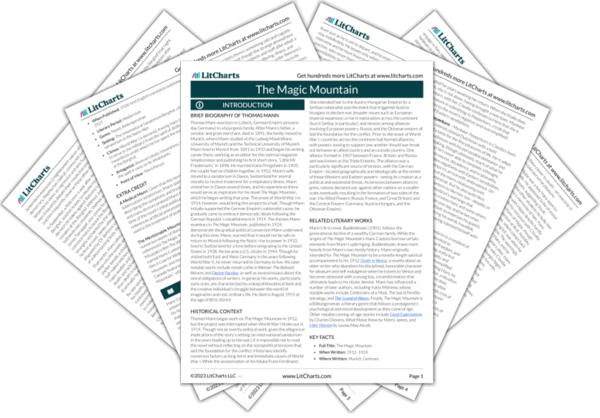Thus far, the narration has hinted that Hans’s journey into the mountains will be transformative in some way. That Joachim looks healthier than Hans has ever seen him suggests, then, that whatever transformation Hans undergoes during his time here may be for the better. Indeed, sanatoriums were generally located in areas with climates thought to be beneficial to people with conditions like tuberculosis and other chronic illnesses.
